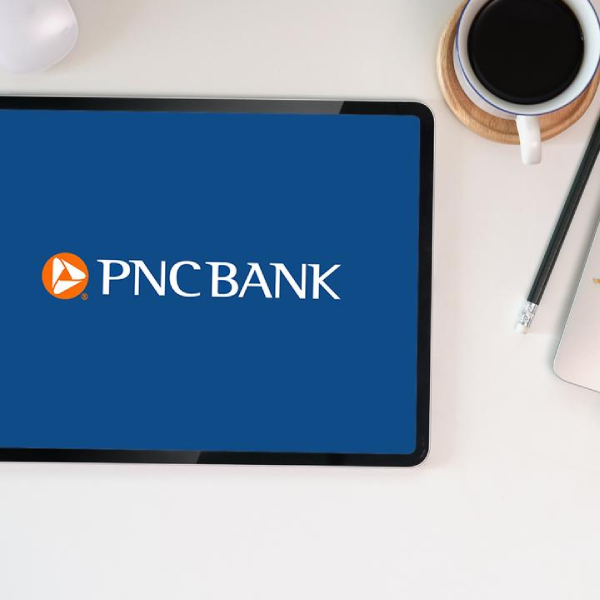Introduction to PNC Virtual Wallet
Understanding your banking options is crucial in current financial landscape. PNC Virtual Wallet stands out as a tool for managing your money more effectively. It combines checking, savings, and budgeting features into a single platform. This integration can help you handle cash flow and avoid overdraft fees.
The Basics of PNC’s Virtual Wallet
PNC’s Virtual Wallet is not just an account, it’s a financial management system. It includes different pockets for spending and saving. The ‘Spend’ pocket is for daily expenses. The ‘Reserve’ pocket is for short-term savings and the ‘Growth’ pocket is for long-term savings goals.

Key Features and Benefits
The Virtual Wallet offers key advantages. You get tools for budgeting, setting savings goals, and receiving low-cash alerts. The ‘Danger Day’ feature warns you about potential overdrafts. The ‘Low Cash Mode’ can prevent fees by giving time to transfer funds before overdraft occurs.
Understanding Overdraft Policies for PNC Virtual Wallet
Navigating the policies of overdraft for the PNC Virtual Wallet is key. PNC adjusts and updates these policies periodically. It’s important to stay informed of any changes to avoid surprise fees.
Changes in PNC Overdraft Fees and Policies
Recently, PNC made significant changes to its overdraft fees. The PNC overdraft fee is now set at $36 per transaction. But there’s good news: PNC offers a $5 leeway, meaning you won’t be charged if you overdraft by $5 or less. They also introduced ‘Low Cash Mode’ giving users 24 hours to fix their balance before fees apply. PNC now caps the daily overdraft fees at $36, rather than the previous higher amount. They have completely removed Non-Sufficient Funds (NSF) fees, so customers won’t get charged for declined transactions.
Overdraft protection and coverage are different. Overdraft protection links your accounts to cover shortfalls. It has a transfer fee of $10 per use. Overdraft coverage allows transactions beyond your balance at PNC’s discretion. This incurs the $36 overdraft fee. To use these services, you must opt in. Remember, using these services wisely can save you money and stress
Managing Overdraft Fees with PNC Virtual Wallet
Navigating overdraft fees requires good management tools. PNC Virtual Wallet’s features can help avoid or reduce these fees. Here’s how you can leverage them to your financial advantage.
How to Leverage Low Cash Mode
Low Cash Mode is a standout feature in PNC Virtual Wallet. It warns you when your balance drops too low. You will get alerts, which helps prevent overdraft charges. If your balance does go negative, Low Cash Mode gives you 24 hours to fix it. Deposit or transfer funds within this time to avoid fees. Use the PNC app to monitor your account closely and use Low Cash Mode effectively.
The Importance of Danger Day Notifications
‘Danger Day’ notifications are like your financial weather forecast. They warn of days when your balance may run low. This early warning lets you move funds or reduce spending. Avoid overdrafts by transferring money from your Reserve or Growth pockets. Set up these alerts through the mobile app to stay ahead of your finances.
Strategies for Overdraft Fee Waivers
Navigating PNC Virtual Wallet’s overdraft policies? Fee waivers could be an option.
Scenarios for Fee Waivers
Banks may waive overdraft fees in certain situations. PNC may consider waiving your first overdraft fee if you have a good account history. Appealing to the bank during one-time errors or unexpected financial hiccups could result in a waiver. Proven customer loyalty or having a minor account overdraft can also work in your favor.
Contacting Customer Service for Fee Reversals
When facing overdraft fees, contacting PNC customer service is a starting point. Explain your situation clearly and request a fee waiver. Be polite but persistent. Mention any previous good standing with the bank. If first efforts fail, don’t hesitate to ask for a supervisor. Remember, fee reversal decisions are at the bank’s discretion. But a reasoned appeal can be effective.
Overdraft Limits and ATM Withdrawals
Navigating ATM overdrafts is key for PNC Virtual Wallet users. Knowing your limits can prevent surprise fees.
PNC ATM Overdraft Capabilities and Limitations
If you’re wondering how much you can overdraft your PNC Virtual Wallet at an ATM, it varies. PNC decides on a daily limit based on factors like account history. To access ATM overdrafts, you must have overdraft protection opted in. This feature is not automatic. Without opting in, ATM transactions may be declined if funds are insufficient.
PNC’s overdraft fee at ATMs is the standard $36, matching other overdraft transactions. The bank does give you a $5 buffer. That means no fee for overdrafts of $5 or less. But, if you exceed that buffer, expect a fee for each transaction. PNC caps ATM overdraft fees at one per day, no matter how many transactions.
Remember, ATM withdrawals count towards your daily overdraft limit. So, keep track of your limits to avoid multiple overdraft situations. PNC’s recent policy update has reduced the maximum daily cost from $144 to $36, easing the burden on customers.

Opt-In Procedures for ATM Overdraft Coverage
To use PNC’s ATM overdraft capabilities, you must opt in. Here’s a simplified process:
- Visit a PNC branch and opt in with an associate.
- Use the PNC mobile app to edit ‘Overdraft Solutions’ settings.
- Log in to PNC online banking and adjust ‘Overdraft Solutions’.
- Call PNC and choose the appropriate option to opt in.
Opting out is just as easy. Use any of the same methods to remove overdraft coverage. This gives you control over whether your account can go into overdraft at an ATM.
Managing these features wisely ensures you can access funds when needed. Yet, it also protects you from unnecessary overdraft charges. Knowledge of PNC’s overdraft policies empowers you to make informed financial decisions.
Alternatives to Overdraft Fees
Finding ways to avoid overdraft fees can save you money. Explore apps and tools to help.
Utilizing No-Fee Overdraft Apps
No-fee overdraft apps are a smart choice. They give you extra cash without hefty fees. Apps like Chime’s SpotMe let you overdraw up to a certain limit. But, you may need to meet conditions, like regular deposits. These apps are helpful for occasional cash flow issues. Check if you’re eligible for services like Chime or others.
Quick Cash Solutions: Cash Advance Apps
Cash advance apps offer immediate funds until payday. They provide quick relief when in need. Apps like PockBox let users borrow up to $2,500. This can help with unexpected expenses. Most apps don’t require good credit for approval. But, be cautious, as it’s not a long-term fix. Ensure you can repay on time to avoid additional strain.
Final Tips for Avoiding Overdraft Charges
Navigating your finances smartly helps avoid unnecessary overdraft fees. PNC Virtual Wallet offers features designed to keep you on top of your finances. We’ll provide final tips to steer clear of these charges.
Using Account Management Tools to Prevent Overdraft

Effective account management is key to avoiding fees. Use the PNC Virtual Wallet’s tools for a clear money picture. Track income and expenses, and set up alerts for low balances. This can prevent spending more than you have. Always check your available funds before making a transaction to avoid overdrafts.
Exploring Account Linking and Balance Alerts
Linking accounts provides a safety net. If you’re low on funds, a linked account can cover costs. This means no overdraft charges if your main account runs short. Set up balance alerts for real-time updates on your funds. This will help you act quickly to transfer money or cut spending when needed.
Use these strategies to keep fees low and manage your money better. Smart tools like PNC Virtual Wallet can help. Remember, being proactive is your best defense against overdraft charges.

